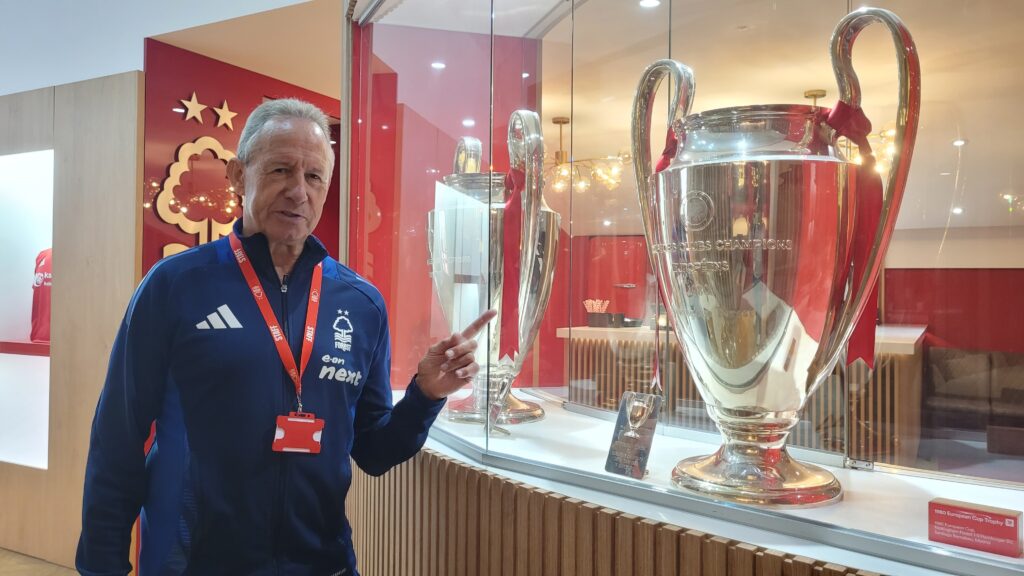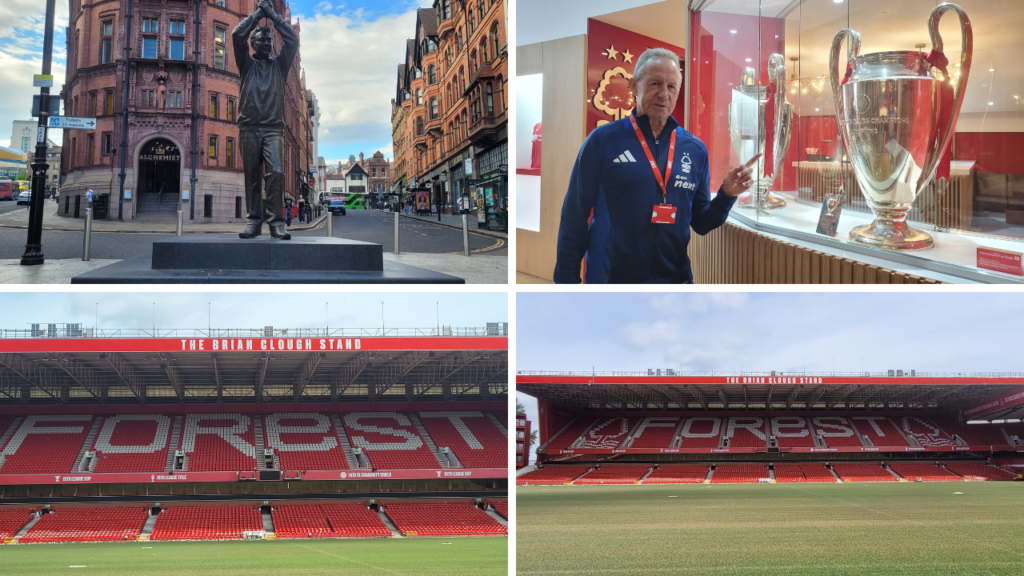
You played for Brian Clough at four clubs, winning big titles with him at Derby County and Nottingham Forest. Why do you think he took you everywhere? And more importantly, what made you follow him everywhere?
John McGovern: I think it was Peter Taylor who first noticed me in a trial match at Hartlepool United in English League Division 4. In the local papers, there was a quote from Peter who told Brian Clough to lock the gates of the ground and don’t open them, because we have signed that skinny kid playing outside-right in the trial match. I signed as an apprentice and then as a full-time professional at Hartlepool. I played in the fourth and third division with him. Brian Clough, meanwhile, had taken over as manager of Derby County. He (Peter Taylor) then brought me from Hartlepool to Derby County.
So, I played there and that’s where I got promotion by winning the second division championship and then going on to win the first division the following season. So that was my first big honour in the game. Then, Clough went for a short stint to Leeds United (44 days) and took me with him. He was neither supported by the players or supporters at Leeds United. So when he took over the job at Nottingham Forest, I was pleased to go and join him. And then, it was history after that, winning the first division championship and then, in 1979, winning the European Cup at the first attempt. Then, in 1980, beating the German champions [Hamburg SV] at the magnificent Bernabeu Stadium in Madrid for two consecutive European titles.
Nowadays, they call it the Champions League. Obviously, they shouldn’t. When we played, you had to be the champions in your own league to get an opportunity to play in the competition. Now, you can be fourth and fifth in your country and get into the competition. So, please, UEFA, if you are reading this, can you please change the name, as it is not the Champions League.”
What was Clough’s secret? Was he a tactical genius or was it great man management? How did a man who didn’t have a real top-flight career himself manage to take two of the smaller clubs to the English title?
McGovern: I think everyone understands coaching, but Clough understood people. His forte was his man management. When it came to signing players, he would leave that totally to Peter Taylor to take care off. Peter Taylor used to sign all the players. So, you got Peter Taylor, who was brilliant at signing players with real ability, and Clough then took over as man manager, because that was his forte. So, you had two different people who were brilliant in different aspects in the game of football.
Peter was the recruitment officer, as you would call them in the modern-day game. He also helped out with a little bit of coaching, but it was mainly Clough, who was a strict disciplinarian like my mother. She would have taught him a thing or two about being strict. But I always listened to him (Clough) from the age of 16 years.
You won the English Division One in 1977-78 right after being promoted from the second division. You were taking on one of the all-time great sides in Bob Paisley’s Liverpool. What gave you the confidence that you could even compete with them, leave alone beat them to the title?
McGovern: When you go out to play a game of football, it’s 11 against 11. If you have got ability in the side, you can compete. We beat Liverpool a couple of times before people started asking how we managed to do it. As a group, we believed we had the ability. As a persuasive manager, Clough used to get the best out of the players. So, we became a very close-knit team who worked hard for each other and for the manager if we were in trouble on a football field.
We had brilliant players, like Peter Shilton in goal to start with, who went on to win 125 caps for England, so his pedigree was guaranteed. They found that what we were being told by the manager was the truth about how you play a game of football. It is a very simple game. There are too many people in the modern game who are making things complicated. First of all, you need to have good ball control, and then you should have the ability to pass or shoot. We put into practice all that we were being taught by the manager on the football field.
How big a part do you think Peter Taylor played in Clough’s success? Do you think he would’ve been as successful without Peter Taylor by his side?
McGovern: Peter Taylor was absolutely necessary. Whenever we signed a player, it was Peter Taylor who recommended them. Obviously, Clough then negotiated with the player we were going to sign. I was different because Clough met me when I was 16 years of age. I didn’t have my father at that time. It was only my mother. So, Clough became a father figure to me. I fell in love with the game only when I was 15 years of age. I was a little bit of a late learner, and I always believed what Clough said to me about the game.
Also Read: Brian Clough and his Nottingham Forest legacy

Images: Debasis Sen.
A lot of people were mystified that you never won a full Scotland cap, but did lifting the European cup twice with Nottingham Forest kind of make up for that?
McGovern: I was very disappointed with myself, but there were a lot of good midfield players around at that time like Billy Bremner, Kenny Dalglish. I never received one cap. I played for the U23s once or twice. When a new manager [Ally MacLeod] took over the Scotland side, I found it a bit more difficult. One of the journalists asked him how many Forest players will be in the Scotland team, as we had just beaten Manchester United 4-0 at Old Trafford. He said all are playing, but when he announced the team, I wasn’t part of it. When he was asked by the press men, he actually told them he didn’t know John McGovern was Scottish. That’s the true story no one will believe. Under that manager, Scotland won very few games by the way.
A lot of people say that the European cup was easier to win in the old days compared to the present-day Champions League. Do you agree with that?
McGovern: Not at all. It’s as difficult to win now as it was then. Football will never change. It’s always 11 versus 11. If you play against Liverpool Football Club, we know their history. They are one of the most successful teams in British football. Irrespective of which era you are, it was always difficult to beat them. Their record is incredible. Thankfully, when I was at Nottingham Forest, we managed to overtake them for a couple of seasons. But it kept that big European Cup shining in this country for six consecutive years. We were part of teams like Liverpool, Aston Villa and Nottingham Forest. Now we haven’t done that since then – I mean the English clubs – and people ask me why. I said we are not good enough. If you are good enough to win European trophies like Liverpool did, Aston Villa did, we did at Nottingham Forest – we were good enough.
Clough didn’t have as much success in the 1980s as he had the previous decade and his career gradually tailed off. Why do you think that was?
Well, he had an argument with Peter Taylor. I don’t know the actual reasons for the argument, and they fell out. They never spoke with each other again. Peter Taylor left and joined Derby County. The fall-out between Clough and Taylor resulted in Nottingham not having the same success although Clough did manage to win two League Cups with Stuart Pearce as the captain.
When you look back at all the years you spent together, what’s your favourite Clough moment or story? What’s one thing that really sticks in your mind?
Obviously, it was lifting the League Championship for the first time as the captain. The football league in those days, you had to play 42 matches. If you were top of the league, then you deserved to be on top.
For More Such Stories Follow RevSportz




